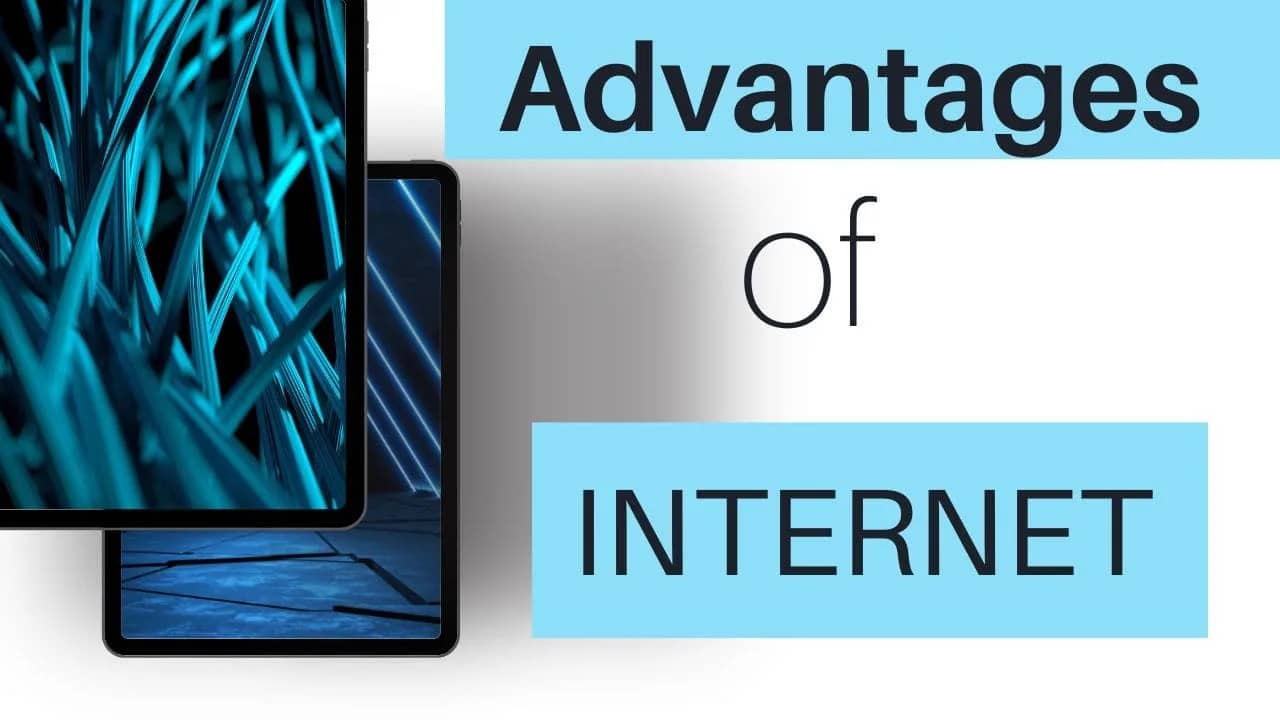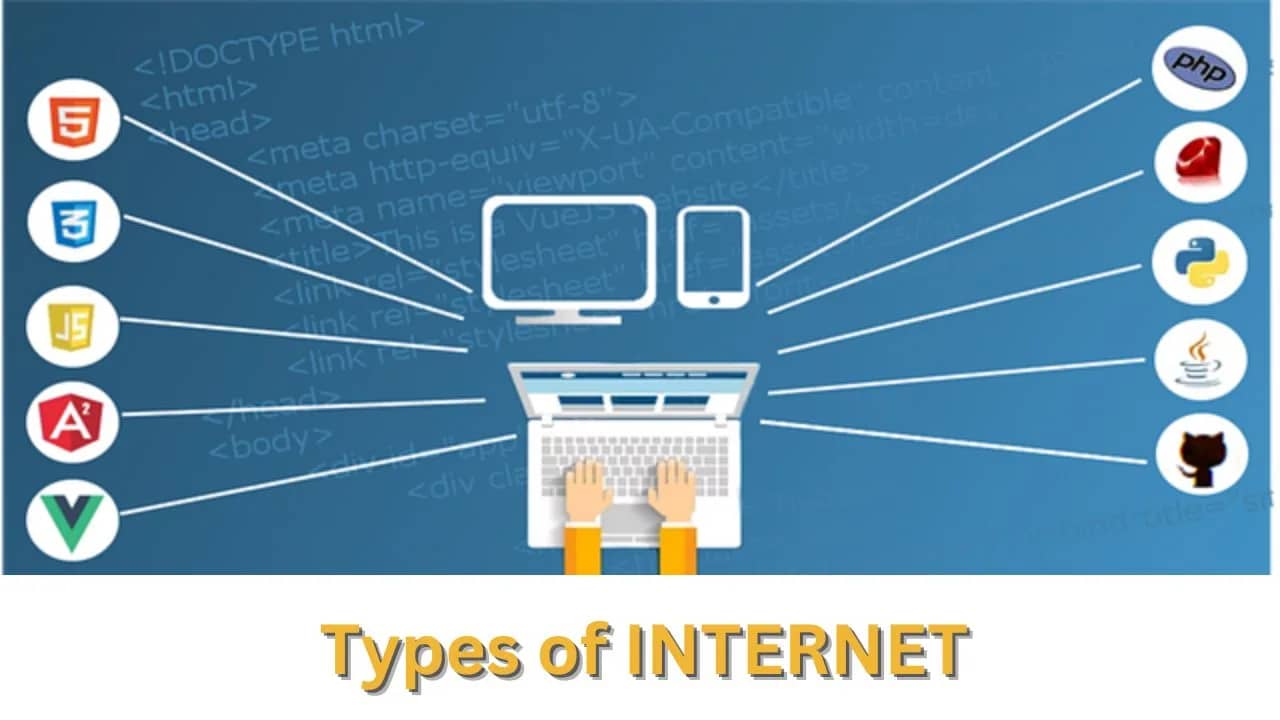The Advantages of the Internet: A Gateway to Endless Opportunities
In the modern world, the internet has become an indispensable tool that has revolutionized the way we communicate, access information, conduct business, and even entertain ourselves. With its ever-expanding reach and myriad applications, the advantages of the internet are abundant and far-reaching. From enhancing global connectivity to transforming education and empowering businesses, the internet has emerged as a catalyst for progress and innovation. In this article, we will delve into the numerous advantages that the internet brings to our lives and society as a whole.
1. Unprecedented Access to Information
One of the most significant advantages of the internet is its ability to provide immediate access to a vast sea of information. In the past, knowledge was often limited to what one could find in libraries or through personal experiences. Today, a simple search query on a search engine can yield a plethora of information on virtually any topic. This democratization of information empowers individuals to educate themselves, make informed decisions, and stay updated on current events from around the world.
2. Enhanced Communication
The internet has revolutionized communication, making it faster, more efficient, and more accessible than ever before. Email, instant messaging, and social media platforms have bridged geographical distances, allowing people to stay connected with friends, family, and colleagues no matter where they are located. Video conferencing tools have transformed the way businesses conduct meetings, making remote collaboration a seamless experience.
3. E-Commerce and Online Shopping
The advent of the internet has given rise to e-commerce, revolutionizing the way we shop. Online marketplaces allow consumers to browse and purchase products from the comfort of their homes, eliminating the need for physical stores and expanding the variety of products available. This convenience has not only transformed the retail industry but has also given small businesses and entrepreneurs a global platform to showcase their products.
4. Distance Learning and Online Education
The internet has disrupted traditional education models by enabling distance learning and online education. With the availability of online courses, webinars, and virtual classrooms, people can now access quality education from renowned institutions around the world without the need to relocate. This is particularly advantageous for individuals with busy schedules, geographical constraints, or financial limitations.
5. Research and Innovation
The internet has proven to be a boon for researchers, scientists, and innovators. Online databases, journals, and repositories provide easy access to a treasure trove of scholarly articles and research papers. Collaboration among researchers from different parts of the world has been greatly facilitated by the internet, leading to accelerated advancements in various fields.
6. Entertainment and Media Consumption
From streaming platforms offering movies and TV shows to user-generated content on platforms like YouTube, the internet has transformed the way we consume entertainment and media. People can now enjoy a wide range of content on-demand, and artists and creators can reach a global audience without the need for traditional distribution channels.
7. Social Networking and Community Building

Social media platforms have emerged as powerful tools for building and maintaining social connections. These platforms allow individuals to share their thoughts, experiences, and creativity with a wide audience.
8. Access to Services
The internet has made various services easily accessible. From booking flights and accommodations to ordering food and transportation, a few clicks on a smartphone or computer can fulfill a multitude of needs. This convenience has significantly improved the overall quality of life for many individuals.
9. Empowerment of Business
For businesses, the internet offers a multitude of advantages. It provides a cost-effective platform for marketing and advertising, enabling businesses to reach a global audience without the need for extensive physical infrastructure. E-commerce allows businesses to expand their customer base beyond their local market, while data analytics tools help them make informed decisions based on consumer behavior.
10. Information Sharing and Awareness
The internet has played a pivotal role in raising awareness about social and environmental issues. Activists and organizations can leverage social media and online platforms to spread information, organize campaigns, and mobilize support for various causes. This has led to increased public awareness and engagement on matters of global importance.
11. Flexibility in Work
The internet has redefined the concept of work and introduced the concept of remote work or telecommuting. With the rise of freelancing platforms and remote collaboration tools, individuals can now work from anywhere in the world, providing them with greater flexibility and a better work-life balance.
12. Innovation and Startups
The internet has lowered the barriers to entry for entrepreneurs and startups. Online resources and platforms provide access to funding, mentorship, and networking opportunities, allowing innovative ideas to flourish and new businesses to emerge. This has led to a surge in technological advancements and disruptive business models.
13. Government and Civic Engagement
The internet has transformed the way governments interact with citizens and vice versa. E-government initiatives have streamlined administrative processes, making it easier for citizens to access government services online. Furthermore, social media has become a platform for citizens to voice their opinions, hold governments accountable, and participate in the democratic process.
14. Cultural Exchange and Globalization
The internet has facilitated cultural exchange on an unprecedented scale. People from different parts of the world can connect and share their cultural heritage, traditions, and artistic expressions. This has led to a greater appreciation and understanding of diverse cultures, promoting global harmony and unity.
In conclusion, the advantages of the internet are vast and multifaceted. Its ability to connect people, provide information, facilitate communication, and drive innovation has transformed virtually every aspect of our lives. However, it’s important to note that along with its advantages, the internet also brings challenges such as privacy concerns, misinformation, and digital divide. As we continue to harness the power of the internet, it’s essential to address these challenges and ensure that its benefits are accessible to all, while minimizing its drawbacks. The internet has undoubtedly shaped the modern world, and its continued evolution promises to bring even more transformative changes in the years to come.
Challenges and the Path Forward
While the advantages of the internet are undeniable, it’s crucial to acknowledge the challenges that come with its widespread adoption. Addressing these challenges is essential to ensure that the internet remains a force for good and continues to enrich our lives.
1. Privacy and Security Concerns
With the amount of personal information being shared online, concerns about privacy and security have become paramount. Data breaches, cyberattacks, and the unauthorized use of personal information have raised alarms about the vulnerabilities of the digital landscape. As we embrace the benefits of the internet, it’s imperative to implement strong cybersecurity measures, educate users about online safety, and establish robust legal frameworks to protect individual privacy.
2. Misinformation and Fake News
The internet has democratized information dissemination, but it has also given rise to the spread of misinformation and fake news. Inaccurate or deliberately misleading content can have significant social, political, and economic implications. Addressing this challenge requires media literacy education, fact-checking initiatives, and responsible content moderation by online platforms.
3. Digital Divide
While the internet has the potential to connect people across the globe, not everyone has equal access to its benefits. Socioeconomic factors, geographical location, and infrastructure limitations can create disparities in internet access and usage. Bridging this divide requires investments in digital infrastructure, initiatives to provide affordable access, and efforts to increase digital literacy in underserved communities.
4. Online Harassment and Cyberbullying
The anonymity provided by the internet has unfortunately enabled negative behaviors such as online harassment and cyberbullying. The impact of such behavior can be severe, affecting mental health and overall well-being. Creating a safer online environment involves a combination of stricter regulations, community guidelines, and promoting respectful online behavior.
5. Overreliance on Technology
As the internet becomes more integrated into our daily lives, there’s a risk of overreliance on technology. From addiction to digital devices to a potential loss of critical thinking skills due to easy access to information, striking a balance between offline and online activities is essential for maintaining a healthy lifestyle.
6. Intellectual Property Concerns
The ease of sharing digital content has raised complex issues regarding intellectual property rights. Online piracy, copyright infringement, and the unauthorized use of creative works can negatively impact artists, content creators, and innovators. Balancing the protection of intellectual property with the free flow of information is an ongoing challenge.
7. Environmental Impact
The internet’s rapid growth has led to an increase in energy consumption and electronic waste. Data centers, which power online services, require significant energy resources. Addressing the environmental impact of the internet requires sustainable practices in data center operations, energy-efficient technologies, and responsible disposal of electronic devices.
8. Online Addiction and Mental Health
The constant connectivity and engagement offered by the internet can lead to online addiction, affecting mental health and well-being. Excessive screen time and social media use have been associated with feelings of loneliness, anxiety, and depression. Promoting digital wellness and encouraging mindful online behavior can mitigate these negative effects.
Moving Forward
To fully realize the advantages of the internet while mitigating its challenges, a multi-faceted approach is required. Governments, private sector entities, educational institutions, and individuals all play a role in shaping the future of the internet.
- Education and Digital Literacy: Promoting digital literacy from an early age is crucial. People should be equipped with the skills to critically evaluate online content, protect their privacy, and navigate the digital landscape safely.
- Regulation and Governance: Governments need to establish comprehensive regulations that protect individual rights, privacy, and security online. Collaborative efforts between governments and technology companies can lead to responsible content moderation and combat misinformation.
- Innovation and Ethics: As technology continues to advance, ethical considerations must guide its development. Tech companies should prioritize user well-being and ethical practices in their products and services.
- Inclusive Access: Efforts to bridge the digital divide should be prioritized. Providing affordable internet access and digital literacy programs to underserved communities can empower individuals and promote equitable access to opportunities.
- Media Literacy: Schools and educational institutions should include media literacy education in their curricula, empowering students to critically assess and engage with digital content.
- Digital Wellness: Individuals should be mindful of their online habits and strive for a balanced approach to technology use. Taking breaks from screens, engaging in offline activities, and fostering real-world connections can contribute to overall well-being.
In conclusion, the advantages of the internet are undeniable, transforming the way we learn, communicate, work, and live. However, as we continue to embrace the digital age, it’s essential to address the challenges that accompany these advancements. By promoting digital literacy, responsible governance, and ethical technology development, we can ensure that the internet remains a powerful tool for positive change while safeguarding individual rights and the collective well-being of society. The internet’s potential is vast, and by navigating its complexities with wisdom and foresight, we can shape a future where its benefits are fully realized by all.




